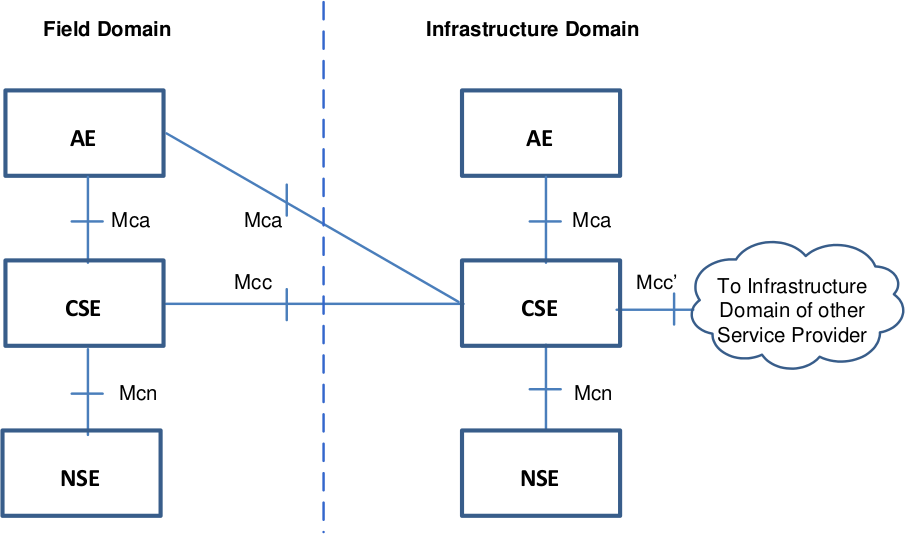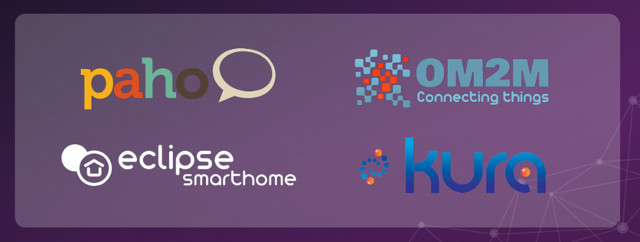The Eclipse Internet of Things (IoT) Working Group has released – or soon will be releasing – four open source projects for the Internet of Things with Eclipse SmartHome 0.8 framework, Eclipse Kura 2.0 IoT gateway framework, Eclipse Paho 1.2 MQTT & MQTT-SN clients, and Eclipse OM2M 1.0 implementation of oneM2M standard.
 Eclipse SmartHome 0.8
Eclipse SmartHome 0.8
Eclipse SmartHome is a framework for smart home solutions that runs on embedded devices, including Raspberry Pi, BeagleBone Black or Intel Edison development boards.
The latest SmartHome 0.8 release includes a new REST API and corresponding “Paper UI” administration interface, support for new devices including Sonos speakers, LIFX bulbs, Belkin WeMo devices, digitalSTROM systems, EnOcean devices (via a new OSGi EnOcean Base Driver) and others, as well as a new rule engine supporting templates for beginners, JavaScript for automation rules and graphical rule editors.
You can find more details on Eclipse SmartHome page, and/or download SmartHome 0.8, and optionally SmartHome Designer for Linux, Mac OS X, or Windows.
Eclipse Kura 2.0
Eclipse Kura is a framework for building IoT gateways with the latest Kura 2.0 release to bring a new responsive user interface (UI), support for multiple cloud connections to Eurotech Everyware Cloud, Amazon AWS IoT, Microsoft Azure IoT and IBM IoT Foundation, new tools and code samples to ease the creation of Kura applications, and tighter integration with Apache Camel.
Eclipse Kura 2.0 will be available later in June. You can find more details, including instructions to use it on BeagleBone Black and Raspberry Pi boards on Eclipse Kura page. Kura is also found on commercial M2M and IoT gateways such Eurotech ReliaGATE 15-10.
Eclipse Paho 1.2

Paho provides an open-source client implementations of the MQTT and MQTT-SN messaging protocols in Java, Python, JavaScript, C, .Net, Android and Embedded C/C++ client libraries. Paho 1.2 release adds automatic reconnect & offline buffering functionality for the C, Java and Android Clients, webSocket support for the Java and Python Clients, and a new Go Client for Windows, Mac OS X, Linux and FreeBSD.
Visit Eclipse Paho page for more details about the implementations and to download the latest 1.2 version.
Eclipse OM2M 1.0
Eclipse OM2M is an open source implementation of the oneM2M standard, and the version 1.0 includes the following features:
- Modular platform architecture, based on OSGi making it highly extensible
- Lightweight REST API exposed through multiple communication bindings including HTTP and CoAP protocols and supporting various content formats such as XML and JSON.
- Flexible data storage based on an abstract persistence layer supporting embedded & server databases, in-memory mode, SQL & NoSQL models.
- Implementation of Dedicated Common Service Entity (CSE) for Infrastructure node (IN), Middle Node (MN), and Application Service Node (ASN), and Common Service Function (CSF) including: Registration, Application and Service Management, Discovery, Data Management and Repository, Subscription and Notification, Group Management, Security, etc.

Version 1.0 release will be available later this month, you can find out more on Eclipse OM2M page.
The foundation has also issued a proposal for Eclipse Kapua open source project aimed to create a modular integration platform for IoT devices and smart sensors.
You can also check out other open source IoT projects on Eclipse IoT microsite.

Jean-Luc started CNX Software in 2010 as a part-time endeavor, before quitting his job as a software engineering manager, and starting to write daily news, and reviews full time later in 2011.
Support CNX Software! Donate via cryptocurrencies, become a Patron on Patreon, or purchase goods on Amazon or Aliexpress





